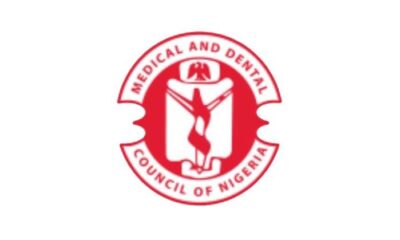Oil & Energy
WAPCO Completes 678km Gas Pipeline Project
The Managing Director, West African Gas Pipeline Company (WAPCO), Mr Charles Adeniji says the company has completed its 678-kilometre pipeline link project from Escravos, near Warri in Delta State, Nigeria to Ghana.
Adeniji told energy correspondents in Lagos recently that the company had earlier completed the regulating and metering facilities at the export terminal in Itoki, Nigeria, Cotonou, Benin Republic, Lome in Togo, and Tema and Takoradi in Ghana.
The WAPCO managing director said the $1billion project, which is the first of its kind in the sub-region, had some challenges, which resulted to the delay in meeting the initial completion target.
He said the company has commenced operations, and was already transporting compressed gas to some of its customers, adding that its success story would be complete when it is able to run the pipeline at nameplate capacity.
His words: “We believe that with the spirit of West African Gas Pipeline (WAGP) treaty that created the pipelines, all stakeholders can come together again to determine the gaps and forge a plan that will enable us run the pipelines at its full capacity within the next five years.”
Adeniji noted that the WAGP system had capacity to transport 474 million standard cubic feet (scf) per day, and was scheduled under the initial agreement to transport 134million scf per day.
WAPCO is a limited liability company, owned and operated by WAGP with headquarters in Accra, Ghana, and an office in Badagry, Lagos in Nigeria. It also has field logistics offices in Cotonou, Lome, Tema and Takoradi.
The company is a joint venture between public and private sector investors from Nigeria, Benin, Togo and Ghana, with a mandate to transport natural gas from Nigeria to customers in Benin, Togo and Ghana in a safe, responsible and reliable fashion, at competitive prices with other fuel alternatives.
A statement made available to The Tide indicates that Chevron West African Gas Pipeline Limited has 36.7 per cent stake in WAPCO, with Nigerian National Petroleum Corporation (NNPC) maintaining 25 per cent stake, and Shell Overseas Holdings Limited taking 18 per cent and Takoradi Power Holding Company Limited having 16.3 per cent. The others are, Societe Togolaise de Gaz and Societe BenGaz S.A. with 2 per cent apiece.
The Tide recalls that WAGP transports purified natural gas free of heavy hydrocarbons, liquids and water suitable as fuel for power plants and industrial applications, with 85 per cent of the gas feedstock utilised for power generation while the remaining 15 per cent is pumped to industrial comsumers for production activities.
Vivian-Peace Nwinaene
Oil & Energy
FG Explains Sulphur Content Review In Diesel Production
The Federal Government has offered explanation with regard to recent changes to fuel sulphur content standards for diesel.
The Government said the change was part of a regional harmonisation effort, not a relaxation of regulations for local refineries.
The Chief Executive, Nigerian Midstream and Downstream Petroleum Regulatory Authority (NMDPRA), Farouk Ahmed, told newsmen that the move was only adhering to a 2020 decision by the Economic Community of West African States (ECOWAS) which mandated a gradual shift to cleaner fuels across the region.
Ahmed said the new limits comply with the decision by ECOWAS that mandated stricter fuel specifications, with enforcement starting in January 2021 for non-ECOWAS imports and January 2025 for ECOWAS refineries.
“We are merely implementing the ECOWAS decision adopted in 2020. So, a local refinery with a 650 ppm sulphur in its product is permissible and safe under the ECOWAS rule until January next year where a uniform standard would apply to both the locally refined and imported products outside West Africa”, Ahmed said.
He said importers were notified of the progressive reduction in allowable sulphur content, reaching 200 ppm this month from 300 ppm in February, well before the giant Dangote refinery began supplying diesel.
Recall that an S&P Global report, last week, noted a significant shift in the West African fuel market after Nigeria altered its maximum diesel sulphur content from 200 parts per million (ppm) to around 650 ppm, sparking concerns it might be lowering its standards to accommodate domestically produced diesel which exceeds the 200 ppm cap.
High sulphur content in fuels can damage engines and contribute to air pollution. Nevertheless, the ECOWAS rule currently allows locally produced fuel to have a higher sulphur content until January 2025.
At that point, a uniform standard of below 5 ppm will apply to both domestic refining and imports from outside West Africa.
Importers were previously permitted to bring in diesel with a sulphur content between 1,500 ppm and 3,000 ppm.
It would be noted that the shift to cleaner fuels aligns with global environmental efforts and ensures a level playing field for regional refiners.
Oil & Energy
PHED Implements April 2024 Supplementary Order To MYTO
The Port Harcourt Electricity Distribution (PHED) plc says it has commenced implementation of the April 2024 Supplementary Order to the MYTO in its franchise area while assuring customers of improved service delivery.
The Supplementary order, which took effect on April 3, 2024, emphasizes provisions of the MYTO applicable to customers on the Band A segment taking into consideration other favorable obligations by the service provider to Band A customers.
The Head, Corporate Communications of the company, Olubukola Ilvebare, revealed that under the new tariff regime, customers on Band A Feeders who typically receive a minimum supply of power for 20hours per day, would now be obliged to pay N225/kwh.
“According to the Order, this new tariff is modeled to cushion the effects of recent shifts in key economic indices such as inflation rates, foreign exchange rates, gas prices, as well as enable improved delivery of other responsibilities across the value chain which impact operational efficiencies and ability to reliably supply power to esteemed customers.
“PHED assures Band A customers of full compliance with the objectives of the new tariff order”, he stated.
Ilvebare also said the management team was committed to delivering of optimal and quality services in this cost reflective dispensation.
The PHED further informed its esteemed customers on the other service Bands of B, C D & E, that their tariff remains unchanged, adding that the recently implemented supplementary order was only APPLICABLE to customers on Band A Feeders.
Oil & Energy
PH Refinery: NNPCL Signs Agreement For 100,000bpd-Capacity Facility Construction

The Nigerian National Petroleum Company Ltd (NNPCL) has announced the signing of an agreement with African Refinery for a share subscription agreement with Port-Harcourt Refinery.
The agreement would see the co-location of a 100,000bpd refinery within the Port-Harcourt Refinery complex.
This was disclosed in a press statement on the company’s official X handle detailing the nitty-gritty of the deal.
According to the NNPCL, the new refinery, when operational, would produce PMS, AGO, ATK, LPG for both the local and international markets.
It stated, “NNPC Limited’s moves to boost local refining capacity witnessed a boost today with the signing of share subscription agreement between NNPC Limited and African Refinery Port Harcourt Limited for the co-location of a 100,000bpd capacity refinery within the PHRC complex.
“The signing of the agreement is a significant step towards setting in motion the process of building a new refinery which, when fully operational, will supply PMS, AGO, ATK, LPG, and other petroleum products to the local and international markets and provide employment opportunities for Nigerians.
By: Lady Godknows Ogbulu
-
Politics4 days ago
Fubara’ll Leave Rivers Better Than Expected – LG Boss
-
Sports4 days ago
Eaglets Held In Pre-WAFU Friendly
-

 News22 hours ago
News22 hours agoFubara Expresses Satisfaction With National Council On Niger Delta
-

 Environment20 hours ago
Environment20 hours agoSouth East Businessmen Charge Governors On Rail, Security, Others
-

 News4 days ago
News4 days agoRHI: Lady Fubara Donates 50,000 Books To Public Schools In Rivers
-
Women4 days ago
The Wise Woman
-

 Nation1 day ago
Nation1 day agoYahaya Bello: Senator Hails EFCC’s Probe Of N80.2bn Fraud
-

 Niger Delta21 hours ago
Niger Delta21 hours agoMDCN Clears Asaba Specialist Hospital As Novena University Teaching Hospital

